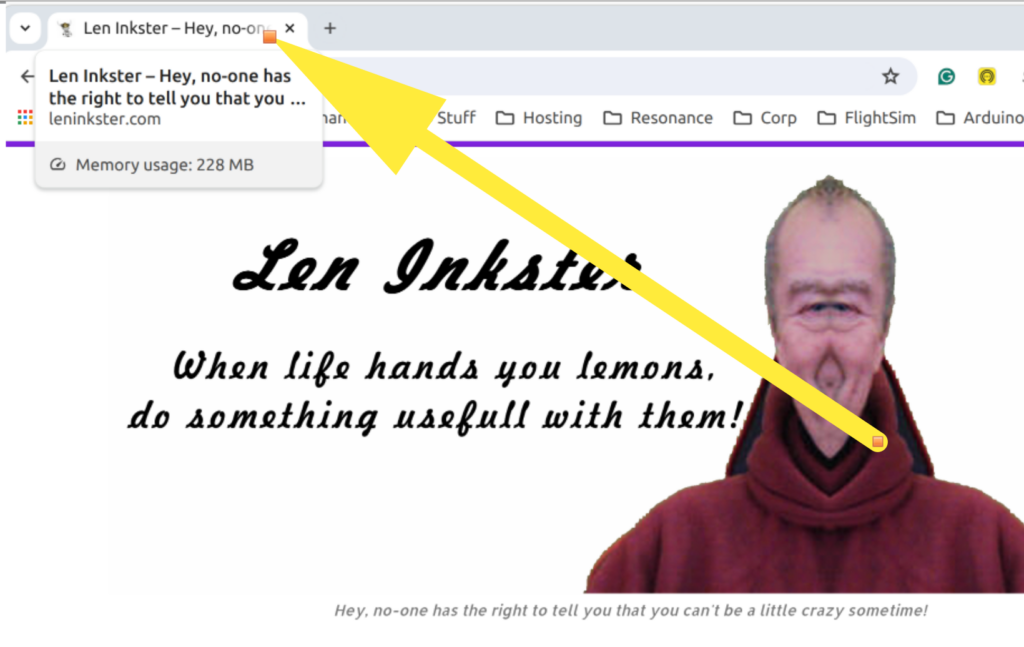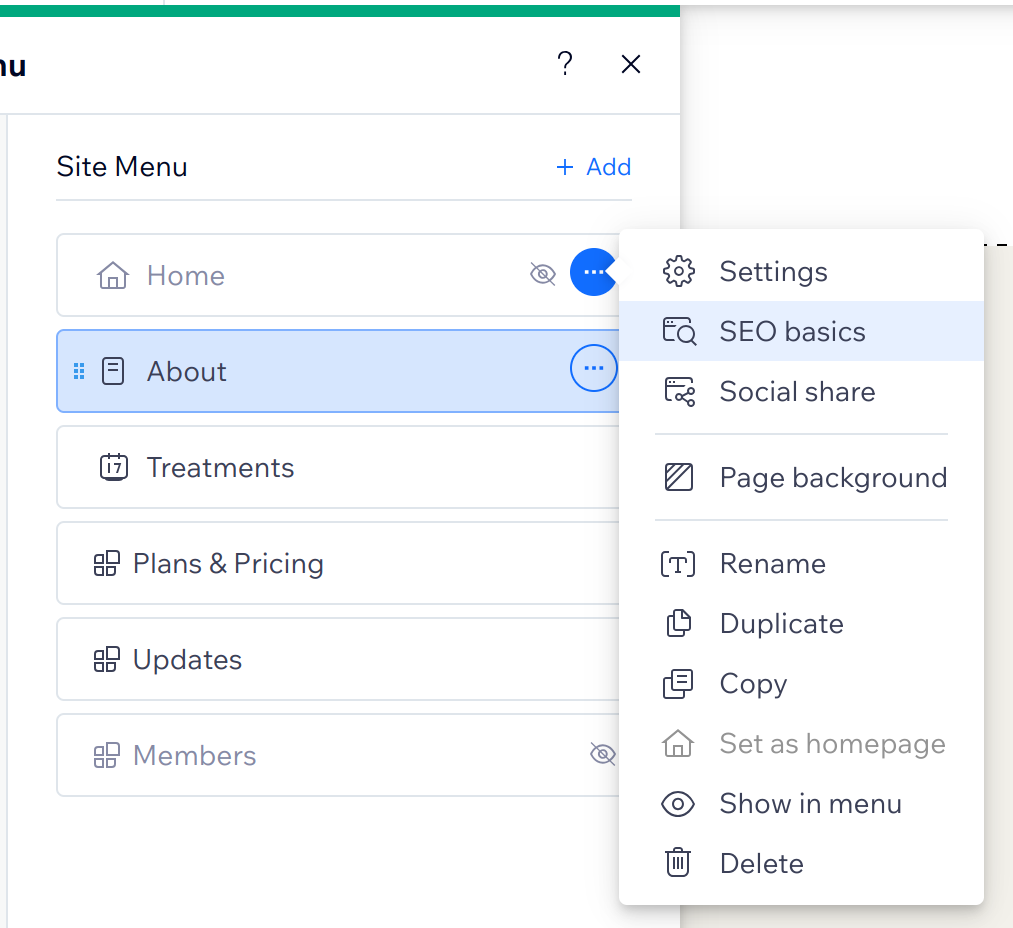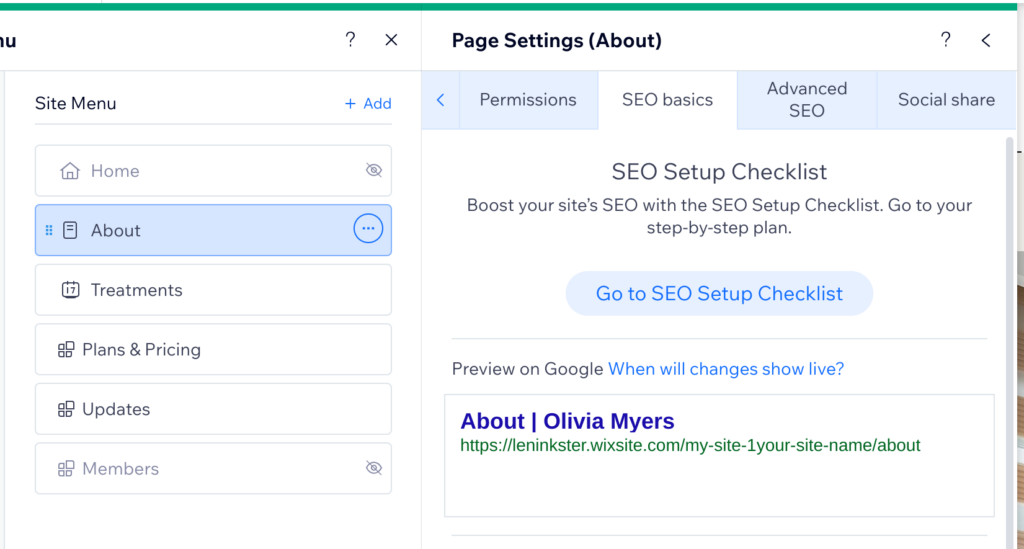Browser tab titles can provide insight into the content and purpose of a website, as well as the priorities and intentions of its owner.
While they don’t always reveal everything about the owner, they can offer clues about their focus, branding, and target audience.
They are also useful as they are used by search engines to provide a short synopsis of your pages content.

Browser tab titles can provide insight into the content and purpose of a website, as well as the priorities and intentions of its owner. While they don’t always reveal everything about the owner, they can offer clues about their focus, branding, and target audience. Here are some common types of browser tab titles and what they might indicate about the website owner:
- Descriptive Title: A straightforward title that describes the content or purpose of the website. For example, “Online Bookstore” or “Tech News Hub”. This suggests that the owner prioritizes clarity and wants visitors to easily understand what the site offers.
- Branded Title: Titles that prominently feature the brand name or logo, such as “Nike – Just Do It” or “Apple – Think Different”. This indicates that the owner values brand recognition and wants to reinforce their brand identity.
- SEO-Optimized Title: Titles that are crafted with search engine optimization (SEO) in mind, containing keywords and phrases relevant to the website’s content or niche. For instance, “Best Italian Restaurants in NYC” or “Fitness Tips for Beginners”. This suggests that the owner is focused on attracting organic traffic from search engines.
- Catchy or Creative Title: Titles designed to grab attention and spark curiosity, often using puns, wordplay, or intriguing phrases. Examples include “Byte Me: A Byte-sized Tech Blog” or “Wanderlust: Adventures Await”. This indicates that the owner values creativity and wants to engage visitors with a unique brand voice.
- Action-Oriented Title: Titles that encourage visitors to take a specific action, such as “Sign Up Now for Exclusive Deals” or “Download Your Free Ebook Today”. This suggests that the owner is focused on driving conversions or engagement.
- Personalized Title: Titles that include the owner’s name or personal brand, such as “John Smith Photography” or “Sarah’s Yoga Studio”. This indicates that the website is closely tied to the owner’s personal identity or expertise.
- Localized Title: Titles that indicate the website’s geographical focus, such as “Chicago’s Best Pizza” or “London Fashion Trends”. This suggests that the owner targets a specific geographic audience or market.
- News or Event-Based Title: Titles that reference current events, holidays, or trends, such as “Black Friday Blowout Sale” or “Summer Festival Guide 2024”. This indicates that the owner is responsive to timely opportunities and wants to stay relevant to their audience.
Overall, browser tab titles offer valuable insights into the strategies and priorities of website owners, providing clues about their branding, marketing tactics, and target audience.
Overall, browser tab titles offer valuable insights into the strategies and priorities of website owners, providing clues about their branding, marketing tactics, and target audience.
Getting the Tab Title Wrong
If a browser tab title points to the wrong information, it can lead to confusion and frustration for users. Here are some potential consequences of having an incorrect browser tab title:
- Misleading Users: Users may be misled about the content or purpose of the website, leading to a negative user experience. This can erode trust and credibility, potentially causing users to leave the site or seek information elsewhere.
- Reduced Click-Through Rates: If the browser tab title does not accurately reflect the content of the website, users may be less likely to click on the link when it appears in search engine results or shared on social media. This can result in lower click-through rates and reduced organic traffic.
- Negative Brand Perception: An incorrect browser tab title can reflect poorly on the website owner’s brand, giving the impression of carelessness or incompetence. This can damage the reputation of the brand and make it more difficult to attract and retain customers.
- Decreased Search Engine Ranking: Search engines may penalize websites with misleading or inaccurate browser tab titles, as it goes against their guidelines for providing relevant and trustworthy search results. This can lead to a decrease in search engine ranking and visibility, making it harder for users to find the website online.
- Legal Consequences: In some cases, providing false or misleading information in a browser tab title could potentially lead to legal issues, especially if it constitutes false advertising or deceptive practices.
To mitigate these risks, website owners should ensure that their browser tab titles accurately reflect the content and purpose of their website. This can help to maintain trust with users, improve search engine visibility, and protect the reputation of the brand. Regularly reviewing and updating browser tab titles as needed can also help to ensure that they remain accurate over time.
Here’s the rub
Wix is one of several popular cloud-based web development platforms.
With Wix, users can choose from a wide range of templates designed for different industries and purposes, such as portfolios, online stores, blogs, and business websites. The platform also provides tools for managing content, adding multimedia elements like images and videos, integrating with social media, and optimizing for search engines (SEO).
Overall, Wix is sold for its user-friendly interface, flexibility, and the ability to create visually appealing websites without appearing to require any technical expertise.
While this may be true for the actual construction of a website, the nuances behind the website, even for something as simple as browser tab titles require more.
This became super apparent to me recently while working on a website for a client that required a bio for them. They pointed me to their website to collect the information. It was their “About” page that drew my attention.
On clicking on their “About” menu, the browser opened the page and as I hovered over the browser tab, I noticed something strange. Someone other than the client’s name.
This is what prompted me to search further. The result was a post I put on my Facebook page here.

It appears something in the Wix system has hung on to a web page that was created by Olivia Myers and locked it as the default entry, specifically to the “About” tab title of the Wix websites I searched for with Google. Digging deeper, I discovered copyright statements referring back to Olivia Myers were also embedded in the sites. Worse, on some sites, social media icon links pointed back to the Wix services.
So, having nothing better to do…….I went down the rabbit hole.
Down the Rabbit Hole
|
I created an account on Wix. Put in my name, and my profession (IT Security consultant) which I also added to the AI Website generator. I chose a template and, as they say in France (and a lot of other parts of the world) “Volia”, Wix produced a quick rendition of a website for me. All I had to hit was the PUBLISH button and I was live. It took me no longer than 10 minutes. But then I looked at the individual pages created. In particular the SEO Basics option. To my amazement guess what I found……. You guessed it, I was now Olivia Myers. |
 |

Lesson for today
She gave Wix a glowing review on Facebook, and it’s not really surprising.
